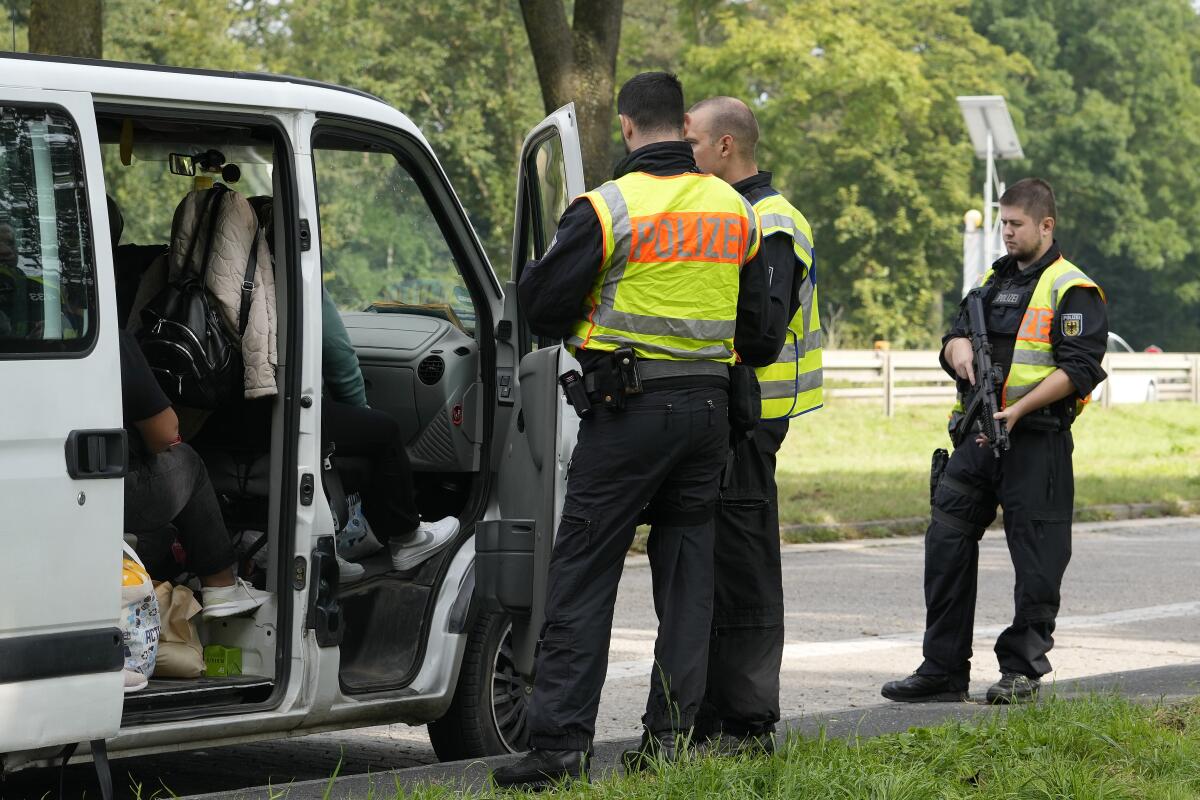
Germany on Monday began random checks at its borders with five western European nations as it seeks to crack down on irregular migration, expanding a system of mobile border controls that are already in place at four other borders.
The checks began at the borders with France, the Netherlands, Belgium, Luxembourg and Denmark before dawn Monday, and are initially scheduled for six months. Germany has already been carrying out the checks at its borders with Poland, the Czech Republic, Austria and Switzerland since last year.
Germany, a member of the 27-member European Union, announced last week that it was expanding border checks to all nine of its land borders this week as part of an effort to crack down on irregular migration and crime following recent extremist attacks. Those include a knife attack blamed on a Syrian asylum-seeker in Solingen last month that killed three people. The suspect claimed to be inspired by the Islamic State group. In June, a knife attack attributed to an Afghan immigrant left a police officer dead and four other people wounded.
The border controls are testing European unity because the border checks are seen by some as a step away from the spirit of the EU’s free travel and trade arrangement known as Schengen. The freedom Europeans have to travel freely across borders for work and pleasure is one of the most beloved benefits of the EU.
Germany, the EU’s largest country, is located in the heart of Europe and borders more countries than any other EU member. Some trade unions have expressed concerns that the controls could hurt trade.
But a return to a past system with closed borders and mandatory border checks for every person crossing the border is not in the cards.
Still, German police say the expanded checks already pose a major challenge to them.
Andreas Rosskopf, the head of Germany’s Federal Police Union, said anyone crossing the border into Germany should now expect to be checked. But he also acknowledged that given the length of the country’s borders, police realistically won’t be able to stop and check every vehicle.
He noted that Germany has 870 miles on its western border, in addition to the 1,490 miles along its eastern and southern borders where the checks were already taking place.
He said in an interview on RBB24 Inforadio that “given the length of the border, permanent and intensive checks are not possible.” He added that “it remains to be seen how successful it will be in curbing migration and people smuggling.”
According to the EU, member states are allowed to temporarily reintroduce controls at the EU’s so-called internal borders in case of a serious threat, such as one to internal security. But it also says border controls should be applied as a last resort in exceptional situations and must be time limited.
Such limitations are often put in place during major sporting events, including the recent Olympic Games in Paris and the European soccer championship.
The unpopular coalition government of Chancellor Olaf Scholz has imposed the border controls as it seeks to crack down on irregular immigration after the far right did well in two recent state elections in eastern Germany. Another is coming next Sunday in Brandenburg, the state surrounding Berlin.
Probst and Gera write for the Associated Press. Gera reported from Warsaw, Poland.